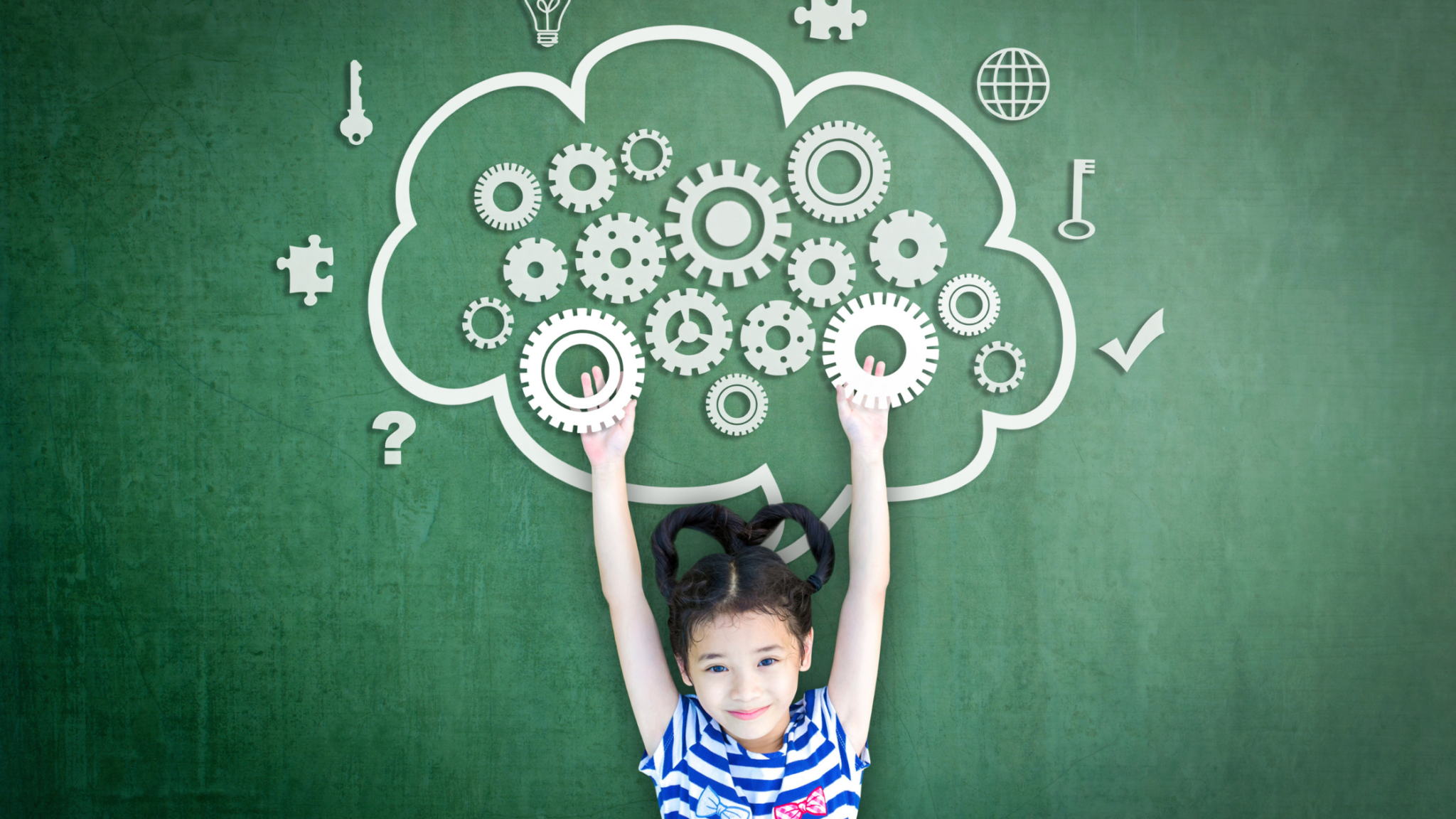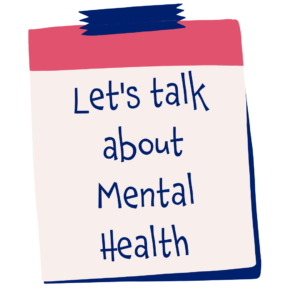
When we think about keeping healthy, many of us automatically think of ways in which we can look after our body, such as exercising more or eating a more balanced diet. However, ensuring we have a healthy mental well-being is equally as important. Mental health matters.
Today is Youth Mental Health Day, a day that was founded to encourage understanding and provoke discussions surrounding the mental health of young people. This year’s theme is all about focusing on how young people can stride forward with their mental health after such a difficult year. Indeed, the statistics surrounding youth mental health are alarming to read, with one in six school-aged children reported as having a mental health problem. A rise from one in ten in 2004 and one in nine in 2017. Below we have shared some of our tips for maintaining a positive mental well-being. We’ve also included some useful contacts of professional services, apps, and websites set up to support anyone who is struggling and looking for guidance.

Positive Thinking
Many of us will have heard the advice to ‘be positive’ or ‘think positive’. Although it might arguably sound too simple, non-specific, and non-scientific, there is actually lots of evidence that shows the effect of positive thoughts on our mental and physical health. Positive thinking doesn’t mean burying our heads in the sand when life gets difficult, but rather approaching difficult situations in a more positive and productive way. It is very difficult to maintain a positive outlook 24 hours a day, but learning to manage our thoughts and find a balance between negative and positive thinking is a great way to maintain a healthy mind.
Top Tip:
Keep a gratitude journal – taking time to write down something you are thankful for each day, or even each week is a great way to focus on the positive things that have happened. How often have we been having a great day and then one little thing seems to ruin it, having a journal will allow you to reflect on the bigger picture and find those all-important silver linings.

Connect With Nature
Spending time in green spaces or surrounding yourself with nature in your day-to-day life can be hugely beneficial for your mental wellbeing and has been found to help with mental health problems such as anxiety and depression. In fact, recent studies show that exercising in green spaces for as little as five minutes can improve mood and feelings of self-esteem. Over the last few years the popularity of ‘forest bathing’ has boomed, as people enjoy the soothing benefits of spending quiet time reflecting in nature. Being outside can also help if you experience seasonal affective disorder (SAD) a type of depression that affects people during specific seasons of the year.
Top Tip:
Bring nature inside – Making time for nature, in whatever way works for you, is important. Save glass jars and then you can reuse them to make mini-gardens (also known as terrariums), using plants, soil, stones, and anything else you’d like to include. This can help introduce nature to your home space, especially important if you live in a more urban environment.
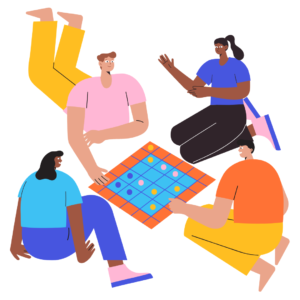
Engage In Activities
Taking part in activities is great for improving our brain health. These activities can take any form, and all have differing benefits. For example, partaking in mindful activities such as yoga can help to reduce heart and respiration rates and blood pressure, leaving you feeling more relaxed and reducing the symptoms of anxiety and nervousness. Sports and physical activities of course have their own benefits for both the brain and body. It is well known that physical activity triggers brain chemicals that help us to feel happier and more relaxed. To learn more about the activities we offer at United Education, take a look at our page
Top Tip:
Find your passion- being physically active tends to be a lot easier if you choose an activity that you really enjoy and that suits your day-to-day life. If you find an activity you love you are much more likely to keep it going and experience the benefits to your mental health.
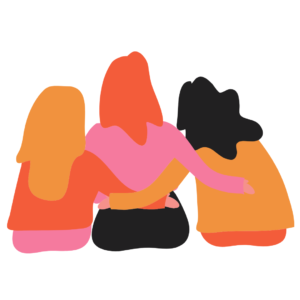
Stay Connected
This past year we have all lived in a climate of social distancing, isolation and disconnection. As inherently social creatures this has gone against our very nature as human beings. This experience has highlighted just how important familial and friendship connections are to our mental wellbeing. Our social groups provide us with an important part of our identity. It’s clear that staying connected in an increasingly virtual world is more important than ever. Research shows that social connectedness has a wide range of benefits to our mental health. Easing stress, anxiety, and depression. As well as boosting self-worth and preventing loneliness. Our connections are also vitally important when we need support, having somebody to visit or call and talk to is invaluable when we are working through our emotions.
Top Tip:
Connect in-person not just online – during lockdown last year it was clear to see that social media has an incredibly positive role to play when it comes to the ease and convenience of staying connected with family and friends. However, it’s important to remember that it is not a replacement for real in-person connections. We need the companionship of others to thrive in life. It’s also true that social media can have the adverse effect of making you feel more lonely. So it’s important to limit your use of it where possible.
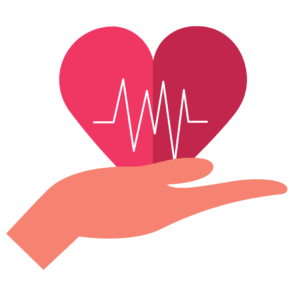
Healthy Practices
Our physical health behaviours such as what we eat, how active we are, and how much sleep we get, affect our wellbeing and mental health. Exercise is probably the area that has had the most research conducted in support of the positive effect it has on mental health. Indeed, the effectiveness of exercise for improving depression is so well established that it has become part of the recommended treatment. Maintaining a regular sleeping pattern is another habit that can have a drastic impact on our mental well-being. Sleep deprivation can leave you feeling irritable in the short term, but it can also have serious long-term health consequences as well and has been linked to a range of mental health problems such as anxiety and depression.
Top Tip:
Tech-free bedtime – It is now commonplace for most of us to have our phones with us in the bedroom, but this can be problematic for many reasons. The ‘blue light’ that is emitted from electronic devices actually suppresses melatonin production that helps us get to sleep. Experts recommend where possible to stop using our devices two hours before we go to sleep to reduce their impact on our sleeping pattern.
Below we have included some useful contacts and businesses that help support young people struggling with their mental health. We hope they are useful.
Calm Harm App
The Calm Harm app provides ways for children and young people to manage the urge to self-harm. Free to download.
NSPCC
Keeping children and young people safe from a wide range of abusive situations.
Helpline for adults: 0808 800 5000
Childline (for 18 years old and under): 0800 1111
OCD Action
Offer support and information to anybody affected by OCD
Helpline: 0845 390 6232
Mon – Fri 9.30 am – 5 pm
Papyrus prevention of young suicide
Provides confidential suicide prevention advice to young people and anyone worried about a young person.
Helpline: 0800 068 4141
Samaritans
Provide confidential support for people experiencing feelings of distress or despair.
Helpline: 116 123 (Everyday, 24 hours)
SANE
Offer specialist emotional support and information to anyone affected by mental illness, including family, friends and carers.
Helpline: 0300 304 7000
Everyday 4.30 pm – 10.30 pm
SHOUT
Shout is the UK’s first 24/7 text service, free on all major mobile networks, for anyone in crisis anytime, anywhere.
Text: 85258
Stonewall
Information and advice for LGBT communities and their allies.
Helpline: 0800 0502020
The Mix
Information and support for under 25’s, on-line chat with a trained helpline supporter.
Helpline: 0808 808 4994
Everyday 11 am – 11 pm
What’s Up
What’s up is an amazing free app that uses Cognitive Behavioural Therapy (CBT) and Acceptance Commitment Therapy (ACT) methods to help you cope with Depression, Anxiety, Stress, and more. Use the positive and negative habit tracker to maintain your good habits, and break those that are counterproductive.
YoungMinds
Information for both parents and young people on child and adolescent mental health.
Parents’ Helpline: 0808 802 5544 (Mon-Fri, 9.30am-4pm)

